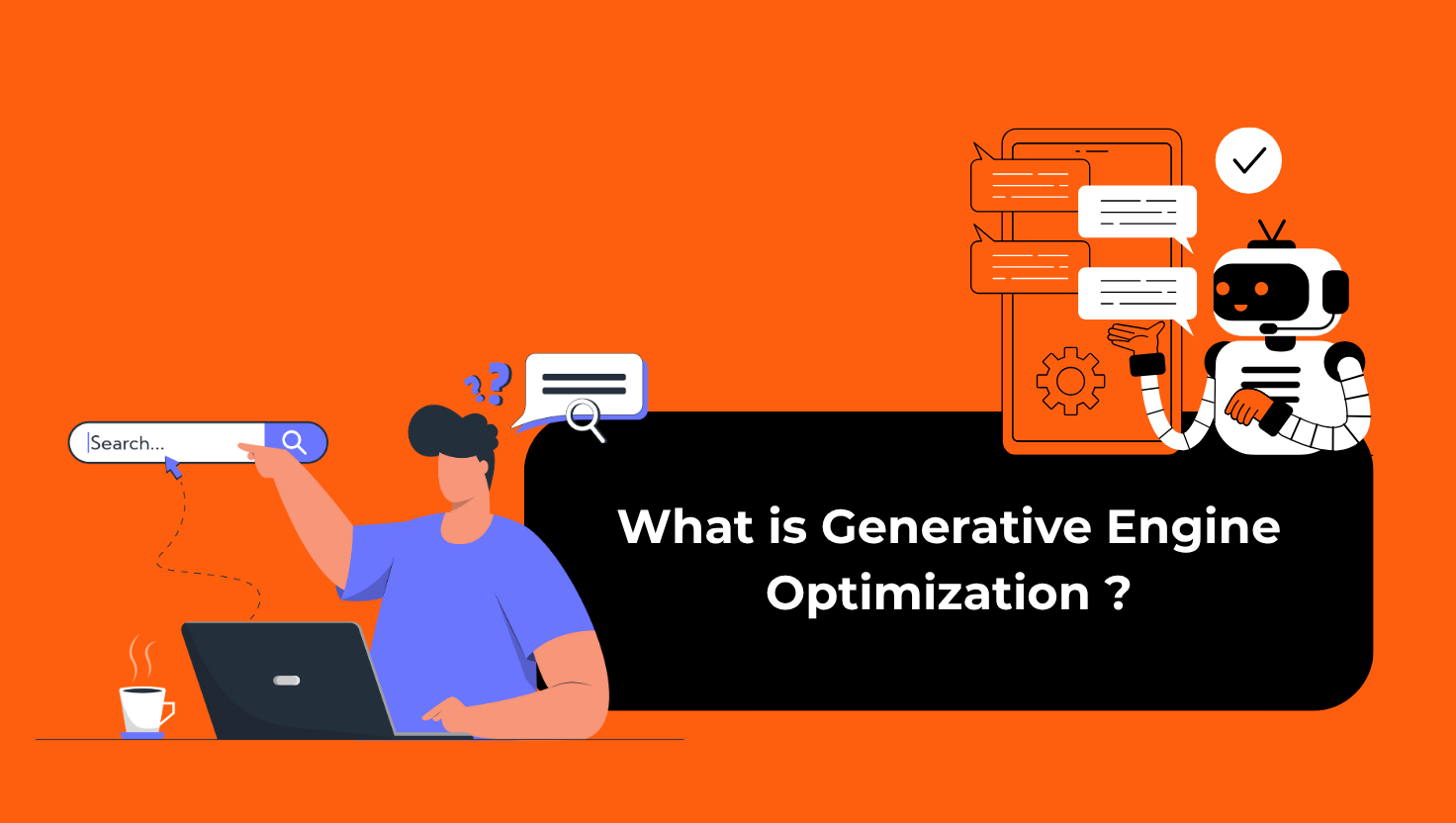Introduction
The digital marketing landscape has experienced a seismic shift with the emergence of AI-powered search engines and generative technologies. Traditional SEO strategies, while still valuable, are no longer sufficient to capture the attention of modern search engines that rely on artificial intelligence to deliver results. Enter Generative Engine Optimization (GEO) – a revolutionary approach that optimizes content specifically for AI-driven search engines and generative platforms.
As businesses scramble to adapt to this new reality, understanding GEO becomes crucial for maintaining competitive advantage. Companies that fail to embrace this evolution risk becoming invisible in an increasingly AI-dominated search ecosystem. This comprehensive guide explores what Generative Engine Optimization entails, why it matters for your business, and how you can implement effective strategies to stay ahead of the curve.
What is Generative Engine Optimization?
Generative Engine Optimization represents a paradigm shift from traditional search engine optimization. Unlike conventional SEO that focuses on ranking web pages in search results, GEO concentrates on optimizing content to be effectively processed, understood, and referenced by AI-powered generative engines like ChatGPT, Bard, Claude, and other large language models.
These AI systems don’t simply index and rank content – they synthesize information from multiple sources to generate comprehensive responses to user queries. Consequently, GEO requires a fundamentally different approach that emphasizes content structure, factual accuracy, and semantic clarity rather than keyword density and backlink profiles.
The core principle of GEO involves creating content that AI engines can easily parse, verify, and cite as authoritative sources. This means developing structured, well-researched content that provides clear answers to specific questions while maintaining high standards of accuracy and relevance.
Why Generative Engine Optimization Matters Now
1. The Rise of AI-Powered Search
Statistics reveal that over 60% of internet users now interact with AI-powered search tools monthly, with this number projected to reach 85% by 2026. Traditional search engines are rapidly integrating generative AI features, fundamentally changing how users discover and consume information online.
2. Changing User Behavior Patterns
Modern users increasingly prefer comprehensive, conversational answers over traditional search result lists. Research indicates that 73% of users find AI-generated responses more satisfying than traditional search results, leading to a dramatic shift in content consumption patterns.
3. Competitive Advantage Opportunities
Early adopters of GEO strategies report 40% higher visibility in AI-generated responses compared to competitors using only traditional SEO methods. This presents a significant opportunity for businesses willing to invest in GEO optimization.
4. Future-Proofing Your Content Strategy
As AI technology continues evolving, content optimized for generative engines will remain relevant and discoverable. Companies implementing GEO strategies now position themselves advantageously for future developments in AI-powered search technology.
Key Differences Between SEO and GEO
Traditional SEO focuses on optimizing for search engine algorithms that rank web pages based on relevance signals like keywords, backlinks, and user engagement metrics. GEO, however, optimizes for AI systems that need to understand, process, and synthesize information from your content.
While SEO emphasizes ranking positions, GEO prioritizes being cited and referenced by AI engines. This means creating content that serves as a reliable source of information rather than simply attracting clicks. The success metrics shift from traffic volume to citation frequency and accuracy of AI-generated responses that reference your content.
Furthermore, GEO requires deeper attention to factual accuracy, source credibility, and content structure. AI engines actively verify information quality and prefer content that demonstrates expertise, authoritativeness, and trustworthiness through clear citations, recent updates, and comprehensive coverage of topics.
Essential GEO Strategies for Success
Content Structure Optimization
Successful GEO implementation begins with restructuring content for AI comprehension. This involves using clear headings, bullet points, and logical information hierarchies that AI engines can easily parse. Additionally, incorporating structured data markup helps AI systems understand content context and relationships.
Authority and Credibility Building
AI engines prioritize content from authoritative sources. Building credibility requires consistent publication of well-researched content, proper citation of sources, and establishing topical expertise through comprehensive coverage of subject areas. Regular content updates also signal reliability to AI systems.
Semantic Optimization
Unlike traditional keyword optimization, GEO focuses on semantic relationships and context. This means creating content that thoroughly addresses topics using natural language, synonyms, and related concepts that AI engines can understand and connect to user queries.
Question-Focused Content Creation
Since many AI interactions begin with user questions, optimizing content to directly answer common questions improves GEO performance. This involves researching frequently asked questions in your industry and creating comprehensive, accurate answers that AI engines can confidently cite.
Measuring GEO Success
Tracking GEO performance requires new metrics beyond traditional SEO measurements. Monitor how frequently AI engines cite your content, the accuracy of generated responses referencing your material, and user engagement with AI-generated content that includes your information.
Additionally, track brand mentions in AI-generated responses, the quality of traffic from AI-referrals, and improvements in topical authority within your industry. These metrics provide insights into your GEO strategy effectiveness and guide optimization efforts.
Common GEO Implementation Challenges
Many businesses struggle with GEO implementation due to outdated content structures that don’t align with AI processing requirements. Additionally, maintaining the high accuracy standards demanded by AI engines requires significant investment in content quality and fact-checking processes.
Another challenge involves balancing traditional SEO requirements with GEO optimization. Companies must maintain visibility in traditional search results while adapting content for AI engines, requiring sophisticated content strategies that serve both purposes effectively.
Why Choose Dodail Solutions Private Limited for GEO Implementation
Implementing a successful Generative Engine Optimization strategy requires specialized expertise and deep understanding of AI-powered search technologies. As India’s No. 1 GEO service provider, Dodail Solutions Private Limited stands as the premier choice for businesses seeking comprehensive GEO services, offering unparalleled advantages that set them apart in the digital marketing landscape.
Market Leadership and Recognition
As India’s leading GEO service provider, Dodail Solutions Private Limited has established an unmatched reputation for delivering exceptional results in the generative engine optimization space. Their market-leading position reflects years of dedicated research, successful client implementations, and consistent innovation in AI-powered content optimization strategies.
Proven AI Expertise and Innovation
Building on their position as India’s No. 1 GEO service provider, Dodail Solutions Private Limited brings cutting-edge AI knowledge to every GEO project. Their team of specialists stays ahead of rapidly evolving AI technologies, ensuring your content optimization strategies remain effective as generative engines continue advancing. With extensive experience in machine learning algorithms and natural language processing, they understand precisely how AI engines interpret and prioritize content.
Comprehensive GEO Service Portfolio
Unlike agencies that offer basic SEO services adapted for AI, Dodail Solutions provides dedicated GEO solutions tailored specifically for generative engines. Their services include semantic content optimization, AI-friendly structured data implementation, authority building strategies, and continuous performance monitoring using advanced AI analytics tools.
Industry-Leading Results and Success Stories
Dodail Solutions’ clients consistently achieve superior results in AI-generated search responses. Their proven methodologies have helped businesses increase their AI citation rates by an average of 180% within six months. These impressive results stem from their data-driven approach and deep understanding of generative engine algorithms.
Customized Strategy Development
Recognizing that every business has unique requirements, Dodail Solutions develops personalized GEO strategies aligned with specific industry needs and target audiences. Their consultation process involves comprehensive analysis of current content performance, competitor research, and identification of optimization opportunities that deliver maximum impact.
Future-Ready Technology Integration
Dodail Solutions invests heavily in emerging technologies and maintains partnerships with leading AI platforms. This ensures their clients benefit from the latest GEO innovations and remain competitive as the digital marketing landscape continues evolving. Their forward-thinking approach positions businesses for long-term success in the AI-driven future.
The Future of Generative Engine Optimization
Industry experts predict that GEO will become the dominant optimization strategy by 2027, as AI-powered search continues expanding. Early preparation for this transition provides competitive advantages and ensures continued visibility as search technology evolves.
Emerging trends suggest that voice search optimization, visual content optimization for AI, and real-time content updates will become increasingly important GEO factors. Businesses should begin experimenting with these advanced strategies to maintain optimization effectiveness.
Conclusion
Generative Engine Optimization represents the next evolution in digital marketing strategy. As AI-powered search engines become increasingly prevalent, businesses must adapt their content strategies to remain visible and competitive. GEO offers tremendous opportunities for early adopters while presenting significant risks for companies that delay implementation.
The transition from traditional SEO to GEO requires strategic planning, resource allocation, and commitment to content quality. However, businesses that successfully implement GEO strategies will enjoy enhanced visibility, improved brand authority, and sustainable competitive advantages in the AI-driven digital landscape.
Success in GEO demands a fundamental shift in thinking about content creation and optimization. Rather than optimizing for search engine algorithms, businesses must optimize for AI comprehension and citation. This transformation, while challenging, is essential for long-term digital marketing success.
The time to begin implementing GEO strategies is now. As AI technology continues advancing and user behavior evolves, businesses that proactively adapt their content strategies will thrive while those that resist change risk obsolescence in the new AI-powered search ecosystem.





